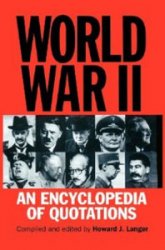Jim Hamm
"The deer meander right through here," Paul Crow whispers, gesturing along the crest of the gentle slope. He explains that they travel toward the winter wheatfield whose bright green peeks through the brush a quarter mile in the distance.
He glances toward my Osage orange self bow, "Old Ugly". "Reckon you can hit anything with that?"
I shrug, well accustomed to his friendly sniping. "Doubt it. But maybe 1 can club one with it."
Paul is a long-time compound shooter, and a good one, and my fascination with wooden bows has always been a fertile source for arguments.
"If you run out of arrows, holler," he declares, "and I'll bring you some of mine."
Before I can come back with a suitably devastating reply, he turns, heading in the direction of the wheatfield where he's been playing tag with a ten-point buck all season long.
The cool wind gusts briskly from the west, down the slope. I ease toward the bottom of the hill to watch back into the breeze. Several scattered groups of live oaks stretch drooping branches nearly to the ground, and I choose a clump and disappear, hopefully, into the brush which surrounds the twisted, snarly trunks.
At first glance, this part of western Texas doesn't promise much in the way of deer hunting. Or any kind of hunting, for that matter. Rolling grassland stretches away in every direction, dotted with live oaks, thickets of mesquite, and clumps of prickly pear cactus. Thicker brush parallels the dry watercourses, and a low mesa, its sides sprinkled with dark cedars, squats on the northern horizon. There is little green, the frost long since sending most plants into dormancy for the winter.
It seems practically a desert — in summer it feels like a desert — but first appearances are deceiving. Having hunted near here before, I know the low brush, cactus, and cured grass support a surprising number of deer — up to thirty or forty per square mile. And droves of turkeys, rabbits, and quail.
Among the crooked trunks of the liveoaks, I kick a couple of fallen branches out of the way to prepare a place to stand. Bowhunting is difficult here and normal hunting tactics are seldom practical. A tree-stand hunter would be hard-pressed finding a tree to support a stand, nevermind whether it was in a good place or not. Stalking becomes a lost cause, with the grass and leaves brittle and dry and most of the country so open. And hunting over any type of bait, such as the corn which most hunters in Texas use, would be practically sacrilegious with a wooden bow.
So I settle down to wait, knowing Paul is a keen observer of wildlife and hoping he's right about the deer moving along my hill. I can't help remembering the game warden we saw a couple of days ago. He seemed surprised when we told him we were bowhunting, commenting that with six weeks of gun season already past the majority of hunters were having trouble killing a deer with a rifle. No lie. I'm thinking. In the two days we've hunted here the deer have been spooky and more alert than usual, which means they are practically invulnerable.
As my eyes slowly scan the surroundings, my thoughts drift back to the first deer I ever shot at with an arrow from a wooden bow, now almost twenty years ago. After suffering several early bow failures — the only thing I knew at that point about wooden bows was that they were made from a tree — I stumbled across a short Osage orange bow in a pawn shop in Oklahoma. Indian-made, it was at least a couple of decades old, but stayed in one piece when the shop owner let me pull it. I bought it for $20.
That fall, perched on a branch ten feet up a tree, I watched a nice eight-point buck trot toward me. The term buck-fever does little to describe the sensation which enveloped me. Though I had hunted for years with rifle, .45 pistol, and fiberglass bow, I had never encountered such a flank-speed deluge of adrenalin.
As the deer passed twenty-five yards away, broadside, I let fly with one of my four homemade flint-tipped arrows. The arrow flew well over his back but a curious thing happened. The sound of the arrow striking the ground beyond scared him toward me. Silently sliding another arrow from the quiver, I shakily nocked it on the string and launched it. That one whisked under his chin, and again he leaped toward me, only fifteen yards away, staring suspiciously at the arrows which had appeared from nowhere.
By then, I was trembling so hard it was a wonder I didn't fall from my perch. After nocking another arrow I shot at him yet again, with no further pretense at aiming, and incredibly, the same thing happened. He stopped ten yards away, broadside, stamping a foot at the odd happenings.
What little remained of my composure turned to cerebral guacamole. I can't swear that I wasn't drooling. With my fourth and last arrow I managed to hit the ground about halfway between us. This was finally too much, and the buck bounded away, tail flagging in alarm.
I held the tree trunk in a death-grip for ten minutes, until the shakes finally subsided. Though I had badly blown the shots, a smile began, then blossomed into laughter. I knew with absolute certainty that my days of hunting with modern weapons were over. Somehow, no matter how long it took, no matter how discouraging the failures, I was going to figure out how to make a wooden bow...
An odd motion fifty yards away catches my attention. It takes a moment to realize what it is; a Pope and Young skunk, ambling through the tall grass and cactus. Experimentally, I draw an arrow at him, then slowly relax the string.
The sun nears the horizon, looking strangely diluted from the blowing dust kicked up by the West Texas wind. A quail whistles off to the right. The hum of truck tires on a distant highway fades, then returns on the surging breeze.
I can't help pondering what makes an allegedly rational person hunt with a bent stick. For the time and cost involved it would be cheaper to eat pickled hummingbird tongues than arrow-killed venison. But dollars and common-sense never enter the picture. If it did, I could have spent all the years since those first fateful shots working for minimum wage instead of struggling with recreating these contrary, captivating weapons. Then I could probably afford to buy this ranch instead of hunting as a guest on Paul's lease.
I finally decide the inner compulsion boils down to the challenge involved. There are few wild frontiers left to conquer today, and the only way to face new frontiers, to face new challenges, is through self-imposed limitations. Each of us chooses the degree of challenge through the degree of limitation: compound instead of rifle, recurve instead of compound, handmade wood bow instead of fiberglass. As Professor Comstock says, wooden bows return us to a time when bows were bows and men were men...
I'm jolted out of the musings as a deer suddenly appears, calmly walking past, travelling away from the wheatfield instead of toward it, as I expected. When less than fifteen yards away I realize it has horns. The bow's draw begins without any conscious effort on my part. Automatically, my eyes lock on a tuft of hair just behind his shoulder. The arrow is drawn, anchored, and released as if performed by someone else. It instantly and miraculously vanishes into the deer's side, precisely where I'm looking.
He gives a great bound, bolts a few yards, then tumbles in mid-stride.
I notice my mouth is hanging open. The shot happened so quickly there wasn't even time for the standard knee-quaking flood of adrenaline. Lowering the bow, the blood pounds in my ears. I glance about in amazement, scarcely believing a deer, slain by my hand, is laying dead in the grass less than thirty yards away.
My mind is suddenly filled with a familiar sharp, clean feeling of peace and wonder: it can only stem from being a Zen-level participant in life, rather than simply a spectator. I savor the sensation.
A coyote yaps in the distance, his haunting cry hanging in the air. The crimson globe of the sun on the horizon sends golden shafts of light flickering among the branches of the trees.
After a few moments, I creep over to the deer. As I kneel down next to him, the emotion of making a kill, a combination of satisfaction and sadness, fills my heart. There is no joy, at least not yet. And certainly no jubilant shout of triumph over a slain adversary. For the deer is no adversary, but an ally. There is only the profound feeling of peace.
I quickly field dress him, noting he is young and the rack is not large. In fact, most rifle hunters would have killed this deer with no more emotion than that of a housewife selecting a cut of meat at the supermarket. He would have no connection with the buck, other than as his executioner.
But I decide I wouldn't trade the little buck for anything, not for the ten biggest deer I've killed with more modern weapons. He and the other deer I've

Taken with wooden bows have been a lot of trouble; twenty years spent making sawdust from bowstaves, tens of thousands of practice arrows shot, and months spent alternately freezing or roasting in the woods. But given the satisfaction for a hunter armed with one of these hand-made weapons, I also decide he's been well-worth every minute of it.
1 notice Paul moving toward me in the gathering twilight, and quickly step away from the deer. Adopting an air of nonchalance, I cross my arms, hiding the blood, as he walks up, oblivious to the buck lying in the tall grass a few yards away.
"Run out of arrows?" he asks.
"1 still have a couple left."
He peers at me closely. "See anything?"
"Not much," 1 tell him, stifling a smile, then give a jerk of my chin, "just that one."
His eyes widen. "All right!" he blurts, rushing to the deer.
"Nice shot," he says after examining him, then turns to pump my hand. An outrageous grin plastered across his face, he's just as thrilled as I am, the mark of a true friend.
And, as a true friend, he quickly pronounces, "I guess we can settle up for my unerring guide services later." With a satisfied smirk, he hooks a thumb in his front pocket.
"If you'd known a buck was coming through here," I protest," you'd have been sitting on my shoulders all afternoon."
He hesitates, but I notice he doesn't deny it. He tries a different approach. "No bigger'n that deer is, throw him over your shoulder and let's head for camp."
I give a snort which might pass for a laugh. "No amount of pestering's gonna do you any good. I'm insult-proof tonight."
"I would be, too," he finally confesses, reaching down to grab a horn.
As we begin dragging the deer toward camp, Paul asks, "How hard is making one of those wood bows, anyway?"
"If you've been living clean, not hard."
He just rolls his eyes.
"But in this case," I continue, "maybe between the two of us we can turn one out."
He nods. "You're having way too much fun by yourself with those crazy bows. Maybe I'd better start helping you out."
Another convert, helping assure that the days of adventure and self-reliance aren't over just yet. And they never will be, not as long as the ancient lure of wooden bows still holds men within its magical grasp.




 World History
World History









